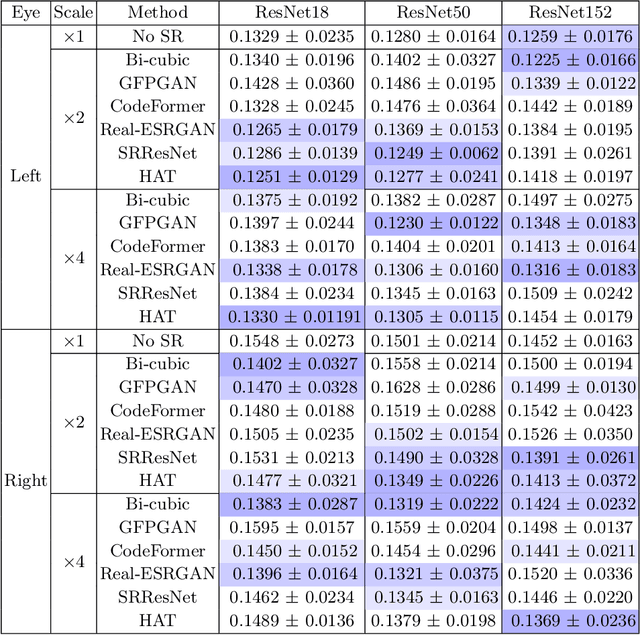Webcam-based Pupil Diameter Prediction Benefits from Upscaling
Paper and Code
Aug 19, 2024



Capturing pupil diameter is essential for assessing psychological and physiological states such as stress levels and cognitive load. However, the low resolution of images in eye datasets often hampers precise measurement. This study evaluates the impact of various upscaling methods, ranging from bicubic interpolation to advanced super-resolution, on pupil diameter predictions. We compare several pre-trained methods, including CodeFormer, GFPGAN, Real-ESRGAN, HAT, and SRResNet. Our findings suggest that pupil diameter prediction models trained on upscaled datasets are highly sensitive to the selected upscaling method and scale. Our results demonstrate that upscaling methods consistently enhance the accuracy of pupil diameter prediction models, highlighting the importance of upscaling in pupilometry. Overall, our work provides valuable insights for selecting upscaling techniques, paving the way for more accurate assessments in psychological and physiological research.
 Add to Chrome
Add to Chrome Add to Firefox
Add to Firefox Add to Edge
Add to Edge